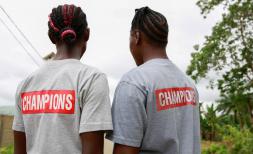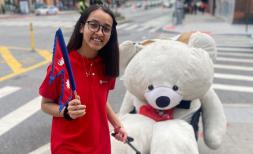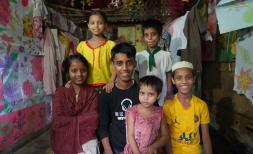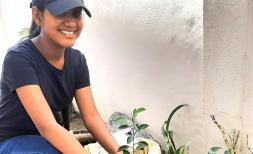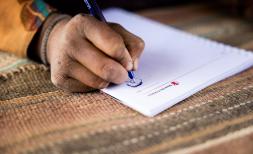Bridging the Gap: youth-led campaigning for every last child
Bangladesh boasts of a substantial youth population made up of approximately 50 million, who have the potential to contribute as partners and lead us to achieving the Sustainable Development Goals (SDGs).
But, do all youths get the chance to participate? Is this an equal society?
Growing inequalities and limited access to development opportunities at local and national levels are the major drawbacks for the youth in Bangladesh.
Many young people coming from urban slum or remote rural areas are subject to poverty, lack of education and job skills, in comparison to their peers from well-to-do households, who have access to essential services and life opportunities. Not all children and youth have a voice in decision-making processes that affect them and their future either. In addition, those who do, feel that decision-makers do not often take their contributions and views seriously.
How do we give children and youth a voice?
As part of our global campaign to reach every last child in Bangladesh, Save the Children launched the initiative – Bridging the Gap. This initiative aims to bring young people, who have access to opportunities that gives them a chance at having a bright future, closer to those who don’t have the same opportunities and are left behind in progress because of who they are and where they live. Bridging the Gap is an attempt to begin a movement in the society to engage youth from across social backgrounds and give them a collective voice to stand up in front of government leaders and demand change.
To make this happen, we collaborated with Jaago Foundation , a leading youth-driven organisation and SHOUT , the most popular youth magazine, part of the Daily Star, leading English newspaper.
So how did we go about bridging this gap?
In the first phase, 50 young volunteers, selected out of 1000+ applications received, went through an orientation programme to understand Save the Children and the Every Last Child campaign.
After the orientation, we divided the volunteers into two groups. One visited the Rayerbazar urban slum in Dhaka and the other group went to the remote rural village of Badalput in the northeastern part of Bangladesh.
During the Rayerbazar slum visit, volunteers visited the schools and households and talked to the children, youths and their families to learn about their lifestyles and challenges. Anika Tasnim Nishat, one of the volunteers met 13-year old Kobita Akhtar and spoke about her dreams: “When I understood that I can't have expectations from my parents, I started to save money for school by myself. I worked as a domestic help to manage my school fees, as there's no other alternative for someone like me.” Anika was so moved by her interaction that she wrote a story for The Daily Star.
Atika Khan met 13-year-old Mohammad, who was a migrant and moved with his family from a flood-prone area in Sylhet to the slums in Dhaka. Having never received formal education, and not really liking the life in a slum in Dhaka, Mohammad wants to go back to his village again. “I want to live where my parents and my siblings are, but going back to my village will be better for me.” Atika wrote about her meeting for the Daily Star.
After the visit, the volunteers spoke about their experiences in this video.
The other group of volunteers that went to the remote village of Badalpur, visited the local health facility, school and college and met young people to get first-hand experiences about their lifestyles in these hard-to-reach areas.
Redwan Tanjim, one of the volunteers, created this video about his journey to Badalpur.
During the conversations, the volunteers understood the challenges faced by children and young people in this hard-to-reach community. Badalpur is a flood-prone area, situated on the banks of a river and the main town is 34 kilometers (21 miles) away. Road accessibility is almost nonexistent during the rainy season and local boats are the only transport. It takes at least 4 hours to travel to the closest town. There is a serious lack of access to proper schools and hospitals due to these conditions, making it hard for children and youth to get an education or proper healthcare.
Sourav Das Partha, one of the volunteers met Opu, who walks about 12km (7.5 miles) daily to attend his university, and yet he continues to do so as he has dreams. “I want to become Shakib Al Hasan (a famous cricket in Bangladesh) in future, though I can’t play cricket well, but want to be as popular as Shakib”, explains Opu.
Fatema Sathi met 11-year-old Runa Rani Pal, who talked about her day: “Usually, I leave home at 8am and walk for an hour to get to the boat, then after about an hour’s boat ride, I walk again for about 30 minutes to reach my school. By the time I reach home after school, it gets dark. This is my everyday life.”
To summarize the four weeks, SHOUT magazine produced a video on how Bridging the Gap initiative is helping youths connect with the real issues and challenges in their society.
So what’s next?
Our young volunteers have spent the last four weeks gathering experiences, data, knowledge and an understanding of the life of children and young people living in the most deprived and excluded areas of Bangladesh. They have documented their experiences in videos, stories, photos and on social media. Many have gone back and have had conversations with their peers about the inequality they saw.
All of them are itching to do more and are keen to begin conversations with their leaders to make life better for every last child in Bangladesh. One of the volunteers, Hasan Alam sums up the need for Bridging the Gap perfectly; when asked about the future of Bangladesh, he said, “Unfortunately, millions of children in Bangladesh are deprived of their right to education and are subjected to exploitation and abuse. We are forgetting that children are the future custodians and torchbearers of the society. The future of the nation depends on how they grow up. "
The team is now working towards an event with government leaders to present them with their findings and recommendations.
